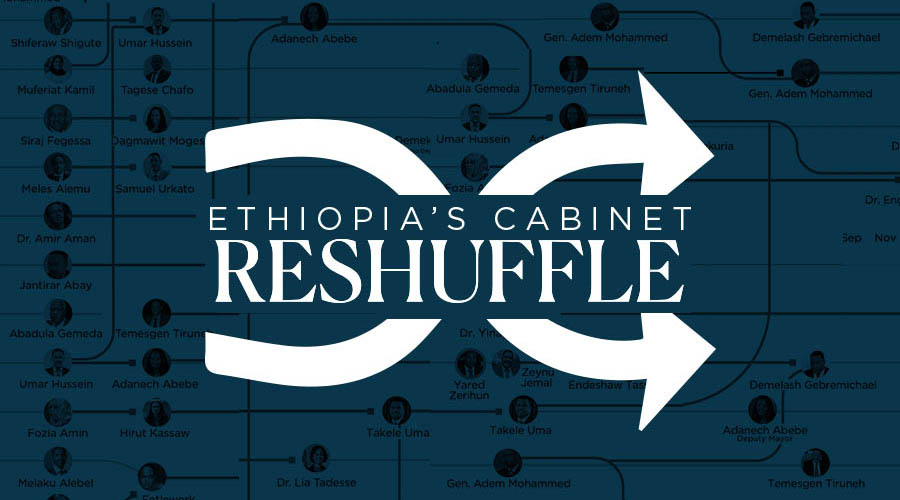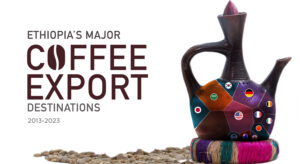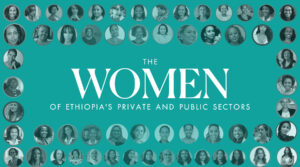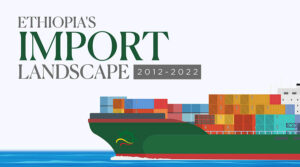What’s most challenging to process about the persistent cabinet and other key political position reshuffles under Abiy Ahmed’s leadership is having to decide whether it’s normal or not. Previous administrations in Ethiopia had varied approaches to managing their cabinet. During the military regime that lasted from 1974 to 1991, frequent cabinet reshuffles were the norm, often in response to political instability or the regime’s need to consolidate power. The post-military government, the Ethiopian People’s Revolutionary Democratic Front (EPRDF), had a more stable approach to managing its cabinet, with ministers staying in their positions for longer periods unchallenged.

Since coming to power in 2018, Abiy Ahmed has been in charge of one of the most diverse and challenging countries on the African continent. Abiy’s administration has been marked by several significant reforms, including the opening up of the political system, the release of political prisoners, and the normalization of relations with neighboring Eritrea. He promised to bring much-needed reforms to Ethiopia’s political system. It is often argued that his frequent cabinet reshuffles have been part of this broader effort to overhaul the country’s government and institutions. However, there are differing opinions on whether these reshuffles have been effective in achieving the government’s goals or have led to further instability.
Over the past five years, the political landscape in Ethiopia has undergone significant changes, in some cases changes that forced reshuffling. One such notable event is the fallout between the ruling Prosperity Party and TPLF, which had dominated Ethiopian politics for decades. Keria Ibrahim and Fetlework “Monjorino” Gebre-Egziabher are examples of ousted politicians in the wake of the fallout. The TPLF’s hegemony was a significant obstacle to reform and progress, and the reshuffles allowed Abiy to bring new voices whose service would not be a conflict of interest.
Another significant event is the national elections that took place in Ethiopia. The pre and post-election periods created a markedly different political environment, and it is to be expected that new people with an electoral mandate would be added to the cabinet. Therefore, some of Abiy’s reshuffles are a necessary step in ensuring that the government reflects the will of the people and that they have a say in how the country is run.
Though these dynamic challenges to the political scene give a level of justification for the frequent reshuffles, the persistent change in key personnel exacerbates the psycho-social perception of the precariousness of peace and prosperity in the country. The reshuffles give a sense that there is a lack of stability and strategic vision in the government. Critics futher argue that the reshuffles are not always strictly necessary and that they reflect a lack of clear policy direction, which is what is leading to constant changes in personnel and policy. The constant reshuffling of cabinet ministers and other key officials has been criticized for creating uncertainty and making it difficult to implement policies and programs effectively and consistently.
To be fair, the Prime Minister has allowed several key personnel to retain their position for extended periods— some, like Billene Seyoum (Press Secretary) and Demeke Mekonen (Deputy Prime Minister and Minister of Foreign Affairs), have even retained the same position since being appointed nearly five years ago (Demeke Mekonen even served as Deputy PM to Abiy’s predecessor, Halemariam Dessalegn.) It can be argued that the frequent changes in personnel reflect a commitment to promoting meritocracy and ensuring that people are appointed based on their skills and abilities rather than their political connections.
On the flip side, the frequent reshuffles have raised murmurs of concern, particularly regarding ethnic representation. Ethiopia’s political (and, arguably, social) systems are steeped in ethnic federalism, which has led to an increase in the ethnic division in the country. The reshuffling may have been an attempt to balance the ethnic representation in the cabinet. While some view this as a reflection of a commitment to diversity and inclusivity in government, others see it as a politically-motivated maneuver from the populist leader to gain support from different ethnic groups.
Be all that as it may, the government’s transparency toward the need for the reshuffles and the competence of appointees for their designated [seasonal?] roles has become increasingly non-existent. This inevitably leads to conspiracy— Are the reshuffles a way for Abiy to consolidate his power and remove potential rivals within the party? Are they a way for Abiy to maintain control over the government and prevent any opposition from emerging?
Overall, the frequent cabinet reshuffles have generated a lot of debate and controversy. Ultimately, only time will tell whether the frequent changes in personnel will help or hinder the government’s ability to implement meaningful reforms and move Ethiopia forward. In the meantime, the reshuffles continue to feed into a growing disillusionment and confusion among the people of Ethiopia who have already likely exhausted their emotional (and political?) bandwidth after suffering through multiple significant psycho-social crises.
| Position | Assigned to | Tenure | Notes |
|---|---|---|---|
| Minister of National Defense | Motuma Mekassa | April 2018 – October 2018 | |
| Aisha Mohammed Mussa | October 2018 – April 2019 | ||
| Lemma Megersa | April 2019 – August 2020 | ||
| Dr. Kenea Yadeta | August 2020 – October 2021 | ||
| Dr. Abrham Belay (incumbent) | October 2021 | ||
| Attorney General/Minister of Justice (administrative renaming of the position) | Getachew Ambaye | 2016 – October 2018 | The Ministry of Justice and the Office of the Attorney General have at different times either functioned as separate entities or been combined into one body. |
| Berhanu Tsegaye | October 2018 – March 2020 | ||
| Adanech Abebe | March 2020 – September 2021 | ||
| Dr. Gedion Timotheos (incumbent) | October 2021 | ||
| Minister of Finance | Abrham Tekeste | 2016- October 2018 | |
| Ahmed Shide (incumbent) | October 2018 | ||
| Minister of Foreign Affairs | Workneh Gebeyehu | 2016 – April 2019 | |
| Gedu Andargachew | April 2019 – November 2020 | ||
| Demeke Mekonnen (incumbent) | November 2020 | Demeke Mekonen holds the position of Minister of Foreign Affairs, Deputy Prime Minister, as well as Vice-President of the Prosperity Party | |
| Minister of Labor and Social Affairs | Dr. Hirut Woldemariam | April 2018 – October 2018 | |
| Mrs. Ergoge Tesfaye (incumbent) | October 2018 | ||
| Minister of Peace | Muferiat Kamil | October 2018 – October 2021 | This Ministry was created in October 2018. |
| Benalf Andualem (incumbent) | October 2021 | ||
| Minister of Agriculture and Livestock | Shiferaw Shigute Wolassa | April 2018 – July 2018 | |
| Oumar Hussein | October 2018- January 2023 | ||
| Girma Amente (incumbent) | January 2023 | ||
| Chief Speaker of the House | Muferiat Kamil | April 2018 – October 2018 | |
| Tagese Chafo (incumbent) | October 2018 | ||
| Minister of Transport | Siraj Fegessa | April 2018 – October 2018 | |
| Dagmawit Moges | October 2018- January 2023 | ||
| Alemu Sime (incumbent) | January 2023 | ||
| Minister of Mines and Energy | Meles Alemu | April 2018 – October 2018 | |
| Samuel Urkato | October 2018 – August 2020 | ||
| Takele Uma | August 2020 – January 2023 | ||
| Dr. Eng. Habtamu Itefa Geleta (incumbent) | January 2023 | ||
| Minister of Health | Dr. Amir Aman | April 2018 – December 2019 | |
| Dr. Lia Tadesse (incumbent) | March 2020 | ||
| Minister of Urban Development and Housing | Jantirar Abay Yigzaw | April 2018 – April 2019 | |
| Aisha Mohammed Mussa | April 2019 – October 2021 | ||
| Chaltu Sani (incumbent) | October 2021 | ||
| National Security Advisor | Abadula Gemeda | April 2018 – June 2018 | |
| Temesgen Tiruneh | October 2018 – November 2020 | ||
| Gedu Andargachew | November 2020 – June 2022 | ||
| Redwan Hussein (incumbent) | June 2022 | ||
| Director General of Revenue and Customs | Oumar Hussein | April 2018 – October 2018 | |
| Adanech Abebe | October 2018- March 2020 | ||
| Lake Ayalew | March 2020 – August 2022 | ||
| Aynalem Nigusie Ali (incumbent) | August 2022 | ||
| Ministry of Tourism | Fozia Amin | April 2018 – October 2018 | |
| Hirut Kassaw | October 2018 – October 2021 | ||
| Nasise Challi (incumbent) | October 2021 | ||
| Ministry of Trade and Regional Integration | Melaku Alebel | April 2018 – October 2018 | The Ministry of Trade and Regional Integration and the Ministry of Industry have at different times either functioned as separate ministries or been combined into one. Currently, they exist as separate ministries. |
| Fetlework Gebre-Egziabher | October 2018 – January 2020 | ||
| Melaku Alebel | January 2020 – April 2022 | ||
| Gebremeskel Challa (incumbent) | April 2022 | ||
| Ministry of Industry | Dr. Ambachew Mekonen | April 2018 – October 2018 | |
| Fetlework Gebre-Egziabher | October 2018 – January 2020 | ||
| Melaku Alebel (incumbent) | January 2020 | ||
| NBE Governor | Teklewold Atnafu | 2006 – June 2018 | |
| Dr. Yinager Dessie | June 2018 – January 2023 | ||
| Mamo Mihretu (incumbent) | January 2023 | ||
| Federal Police Commissioner | Yared Tilahun | April 2018 – June 2018 | |
| Zeynu Jemal | June 2018 – October 2018 | ||
| Endeshaw Tassew | November 2018 – November 2020 | ||
| Demelash Gebremichael (incumbent) | November 2020 | ||
| Mayor of Addis Ababa | Diriba Kuma | July 2013 – July 2018 | |
| Takele Uma | July 2018 – 18 August 2020 | ||
| Adanech Abebe (incumbent) | September 2021 | Adanech Abebe was Acting Mayor (or Deputy Mayor) between Takele Uma’s departure in August 2020 and her official appointment as Mayor in September 2021 | |
| Head of NISS | Getachew Assefa | 2016 – June 2018 | |
| General Adem Mohammed | June 2018 – June 2019 | ||
| Demelash Gebremichael | June 2019 – November 2020 | ||
| Temesgen Tiruneh (incumbent) | November 2020 | ||
| Chief of General Staff (Army Chief) | General Samora Yunis | 2001 – June 2018 | |
| General Seare Mekonen | June 2018 – June 2019 | ||
| General Adem Mohammed | June 2019 – November 2020 | ||
| Field Marshal General Birhanu Jula (incumbent) | November 2020 | ||
| Minister of Innovation and Technology | Dr. Getahun Mekuria | October 2018 – February 2020 | |
| Dr. Abrham Belay | February 2020 – October 2021 | ||
| Dr. Belete Molla (incumbent) | October 2021 – current | ||
| Minister of Education | Dr. Tilaye Gete Ambaye | 2017 – January 2020 | |
| Dr. Eng. Getahun Mekuria | January 2020 – October 2021 | ||
| Prof. Birhanu Nega (incumbent) | October 2021 |











2 Responses
Dr. Habtamu Itefa is Minister for Water and energy Minstry.
Impressive analysis!